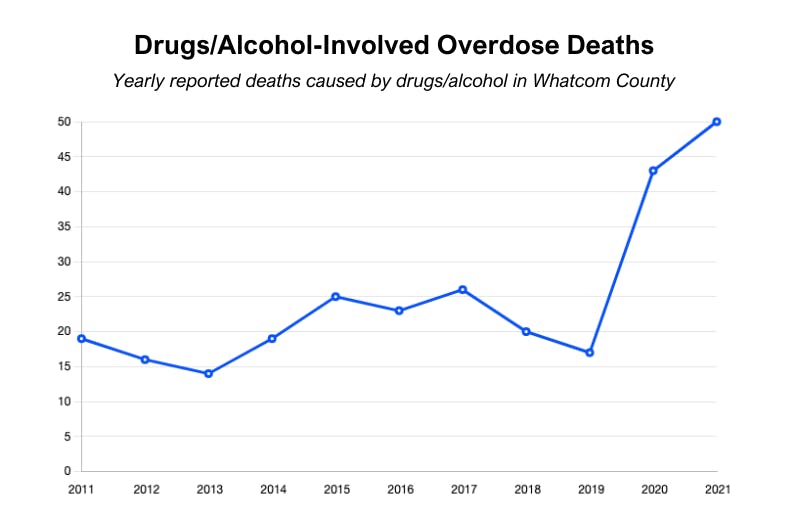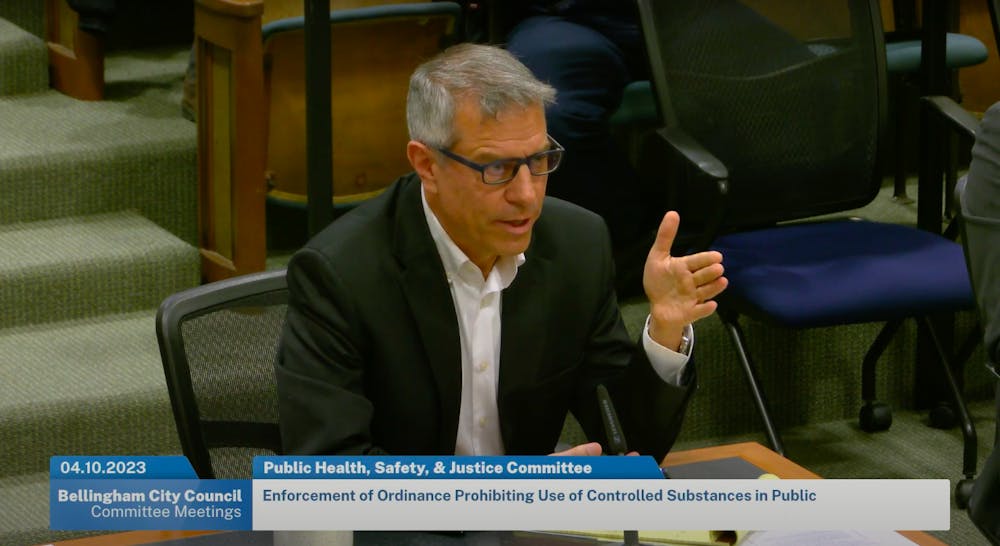The Bellingham City Council voted 5-2 on April 10 to pass an ordinance criminalizing the use of controlled substances in public spaces, which is set to go into effect April 25.
The city plans to provide individuals with counseling and treatment services as an alternative to traditional judicial proceedings. Councilmember Daniel Hammill said the community court intended to handle these drug cases is in its early stages of development.
Mayor Seth Fleetwood first proposed the law in mid-March, but it was rejected by the council after requesting more time to discuss and develop systems that would refer drug users to treatment before an arrest.
This ordinance is the newest addition to the city’s ongoing efforts to address drug-related issues, such as the high numbers of overdoses and related deaths in the city this year.

This graph shows the annual reported deaths related to alcohol poisoning in Whatcom County. Source: Whatcom County Medical Examiner’s annual reports. // Created by Isabel Hyde
During the April 10 Public Health, Safety and Justice Committee meeting, Fleetwood said that the city reported an average of over two overdoses a day in the first quarter of the year, and a 70% increase in fentanyl use from last year.
Susan Ferguson, who has a doctorate in neuroscience and is the director of the University of Washington’s Addictions, Drugs & Alcohol Institute believes that on its own, a law prohibiting public drug use would lead to an overall increase in overdoses.
“Things like passing laws to prevent use in open places really just kind of moves people to more private places where people aren’t around [to help],” Ferguson said. She emphasized the importance of a drug court and widely available resources.
Councilmembers Michael Lilliquist and Kristina Michele Martens voted against the ordinance due to similar concerns. During the council meeting, Martens said she did not believe the city was prepared to treat and house those who would be affected by the ordinance.
“If we cannot figure out the housing component, all of this will be for not, no matter what,” Martens said during the meeting.
City officials are continuing their research and working on securing funding for the community court.
In the meantime, the city will be turning toward the Bellingham Police Department’s current diversion programs. Available services will allow law enforcement to refer potential candidates to treatment rather than immediate incarceration. The Crisis Stabilization Center, Whatcom Homeless Service Center and local programs like the Law Enforcement Assisted Diversion, Ground-Level Response and Coordinated Engagement and Alternative Response Team all work to achieve the city’s goals of curbing incarceration.
Fleetwood and the City Council did not respond to The Front’s request to comment.
Isabel Hyde (she/her) is a city news reporter for The Front. She is a third-year studying public relations. In her free time, she enjoys watching films, curling up with a good book, and going to local music shows. You can reach her at isabelhyde.thefront@gmail.com.






